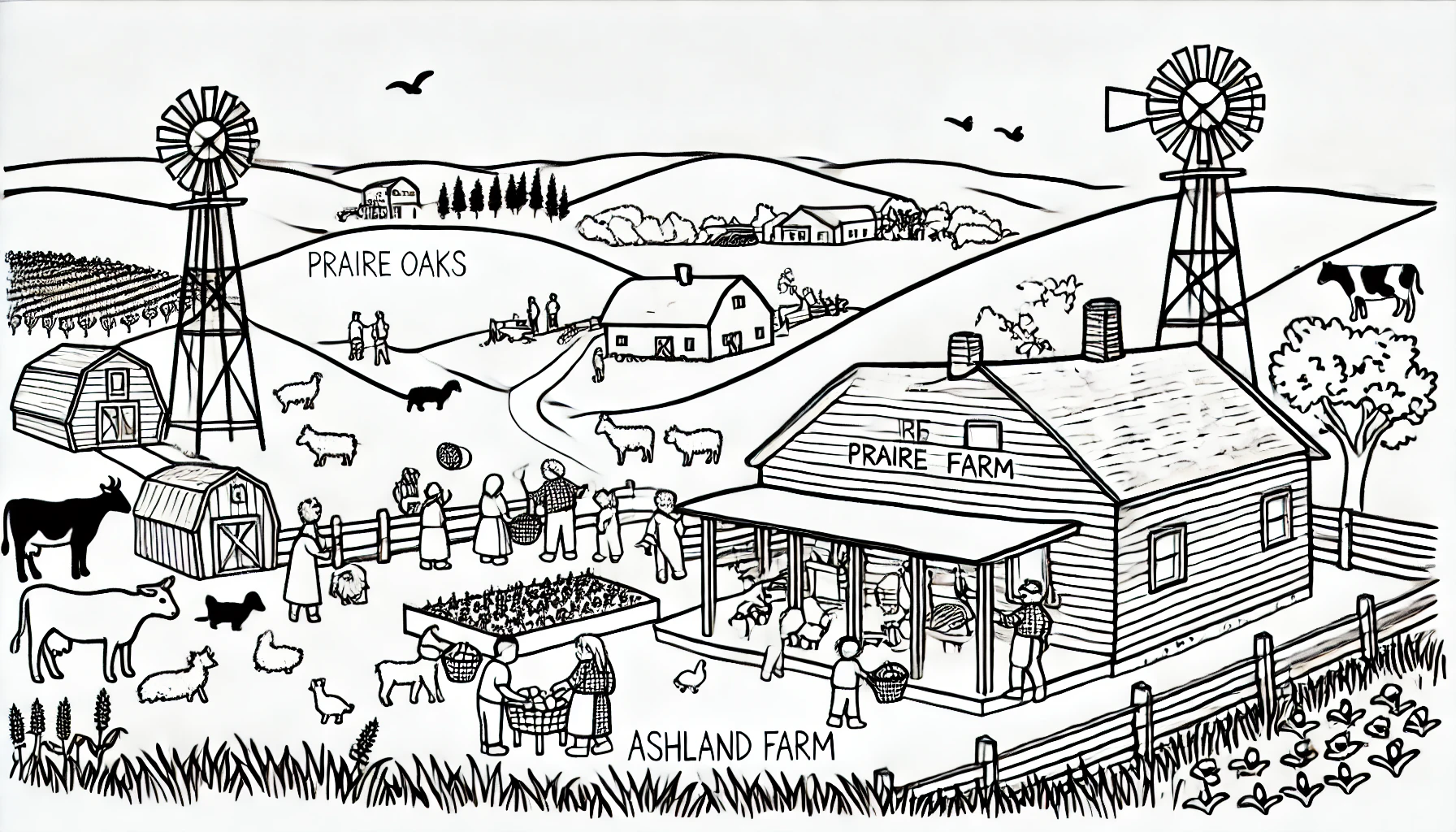Nebraska Farmhouse Ale: A Regional Specialty

Traveling through the vast agricultural landscapes of Nebraska, it is only fitting to delve into the state's unique take on traditional Farmhouse Ales. Nebraska Farmhouse Ale, also known as Nebraska Farmhouse, is a style of beer born out of the state's rural heritage and the influence of European settlers. The style emerged in the early 2000s, largely driven by the pioneering efforts of local brewers such as Omaha-based Upstream Brewing Company and Lincoln's Zipline Brewing Company.
The defining characteristics of Nebraska Farmhouse Ale are its rustic, earthy flavors and a distinct connection to the state's agricultural environment. Breweries often incorporate locally-sourced ingredients such as Nebraska-grown wheat, corn, and hops into their recipes, emphasizing a sense of terroir and regional identity. Furthermore, the beers are typically aged in oak barrels, imparting a subtle oak flavor and adding complexity to the overall profile.
One notable example of a Nebraska Farmhouse Ale is Upstream Brewing Company's '2017 Barrel-Aged Farmhouse Ale', a beer that showcases the style's characteristic earthy and oaky flavors. This particular beer was brewed using a blend of Nebraska-grown wheat and specialty malts, before being aged in oak barrels for several months. Another example is Zipline Brewing Company's 'Farmhouse Ale', a beer that incorporates local wildflowers and herbs, underscoring the style's connection to Nebraska's natural environment.
Nebraska Farmhouse Ale also represents a broader trend in American craft brewing, where regional identity and local ingredients are increasingly coming to the forefront. This focus on place and terroir is reflected in other regional styles, such as the beers produced in the Upper Midwest by breweries like Door County Brewing Company in Wisconsin and Indeed Brewing Company in Minnesota. Through Nebraska Farmhouse Ale, the state's brewers are able to tap into the state's unique cultural heritage, crafting beers that are both fiercely local and universally appealing.
The ongoing development of Nebraska Farmhouse Ale is closely tied to the state's dynamic craft brewing scene, which has grown significantly in recent years. According to the Nebraska Craft Brewers Guild, the number of breweries in the state has increased by over 50% since 2015, with many of these new breweries focusing on regional styles and local ingredients.
Nebraska Farmhouse Ale also resonates with the broader cultural context of Nebraska's rural communities, where agriculture and food production have long been central to the local way of life. As such, this regional specialty represents more than just a style of beer – it is also a celebration of Nebraska's unique heritage and a testament to the power of local culture.
Additional research into Nebraska Farmhouse Ale has shed light on the significant influence of European brewing traditions, particularly those of France and Belgium, where Farmhouse Ales have long been a staple of rural brewing. Nebraska's brewers have drawn on these traditions, but also added their own unique twist, incorporating local ingredients and emphasizing a sense of regional identity.
While the style continues to evolve, one thing is clear: Nebraska Farmhouse Ale is a true reflection of the state's agricultural heritage and its proud brewing tradition.
The defining characteristics of Nebraska Farmhouse Ale are its rustic, earthy flavors and a distinct connection to the state's agricultural environment. Breweries often incorporate locally-sourced ingredients such as Nebraska-grown wheat, corn, and hops into their recipes, emphasizing a sense of terroir and regional identity. Furthermore, the beers are typically aged in oak barrels, imparting a subtle oak flavor and adding complexity to the overall profile.
One notable example of a Nebraska Farmhouse Ale is Upstream Brewing Company's '2017 Barrel-Aged Farmhouse Ale', a beer that showcases the style's characteristic earthy and oaky flavors. This particular beer was brewed using a blend of Nebraska-grown wheat and specialty malts, before being aged in oak barrels for several months. Another example is Zipline Brewing Company's 'Farmhouse Ale', a beer that incorporates local wildflowers and herbs, underscoring the style's connection to Nebraska's natural environment.
Nebraska Farmhouse Ale also represents a broader trend in American craft brewing, where regional identity and local ingredients are increasingly coming to the forefront. This focus on place and terroir is reflected in other regional styles, such as the beers produced in the Upper Midwest by breweries like Door County Brewing Company in Wisconsin and Indeed Brewing Company in Minnesota. Through Nebraska Farmhouse Ale, the state's brewers are able to tap into the state's unique cultural heritage, crafting beers that are both fiercely local and universally appealing.
The ongoing development of Nebraska Farmhouse Ale is closely tied to the state's dynamic craft brewing scene, which has grown significantly in recent years. According to the Nebraska Craft Brewers Guild, the number of breweries in the state has increased by over 50% since 2015, with many of these new breweries focusing on regional styles and local ingredients.
Nebraska Farmhouse Ale also resonates with the broader cultural context of Nebraska's rural communities, where agriculture and food production have long been central to the local way of life. As such, this regional specialty represents more than just a style of beer – it is also a celebration of Nebraska's unique heritage and a testament to the power of local culture.
Additional research into Nebraska Farmhouse Ale has shed light on the significant influence of European brewing traditions, particularly those of France and Belgium, where Farmhouse Ales have long been a staple of rural brewing. Nebraska's brewers have drawn on these traditions, but also added their own unique twist, incorporating local ingredients and emphasizing a sense of regional identity.
While the style continues to evolve, one thing is clear: Nebraska Farmhouse Ale is a true reflection of the state's agricultural heritage and its proud brewing tradition.
